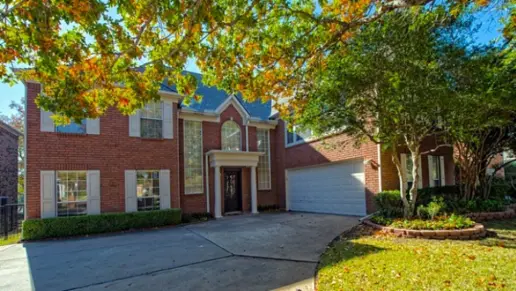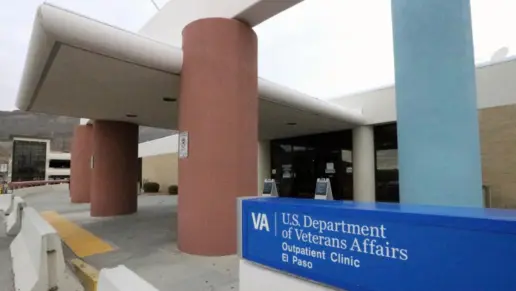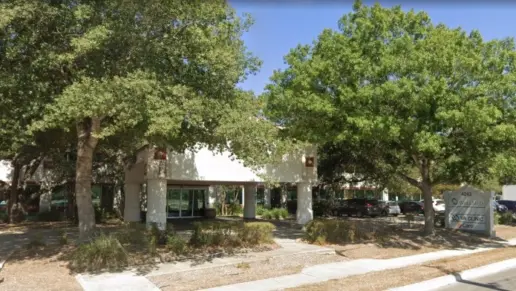About Texas Clinic Fulton – Government Funded Addiction Treatment Center, Suboxone, Methadone and Vivitrol Clinic
Texas Clinic offers outpatient treatment to help people with opioid use issues heal and regain control of their lives. They have two facilities in Houston, Texas. That includes this location on Fulton Street which is wholly funded by the government.
They’re easy to access via public transportation including METRORail’s Red Line and multiple METRO bus routes. It’ll take you roughly 15 minutes to get there from downtown Houston via I-45 if you’re driving. People from nearby Aldine and Spring can easily access and receive care here as well.
The clinic offers a safe, clean and positive space to start healing. The best thing about them is that you can receive treatment for opioid addiction or alcoholism at little or no cost. Remember, they’re funded by the government. They provide targeted care through medication assisted treatment. This technique allows FDA meds to work alongside counseling to ensure full recovery.
The facility may prescribe methadone, Suboxone or Vivitrol depending on your individualized care plans. These meds work to limit withdrawal symptoms and alleviate cravings. You can then participate in counseling to handle the social, behavioral and psychological issues fueling your opioid use. You’ll also learn practical life skills that promote a sober lifestyle and prevent relapse.
Combining meds and behavioral therapy offers an integrated approach that has proven effective in treating opioid use. The technique ensures holistic healing and ushers you into a new life free from drugs or alcohol.
Texas Clinic equips you with all the resources needed for full recovery. Their clinicians are friendly, caring and experienced. Past clients only have beautiful things to say about the clinic. Their accreditation by the Joint Commission further validates their commitment to quality care.
Latest Reviews
Rehab Score
Gallery
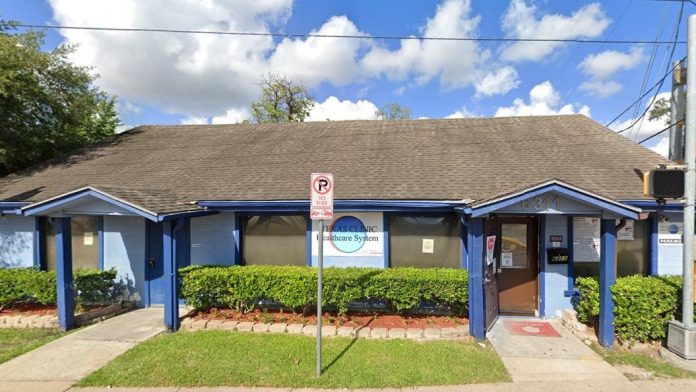
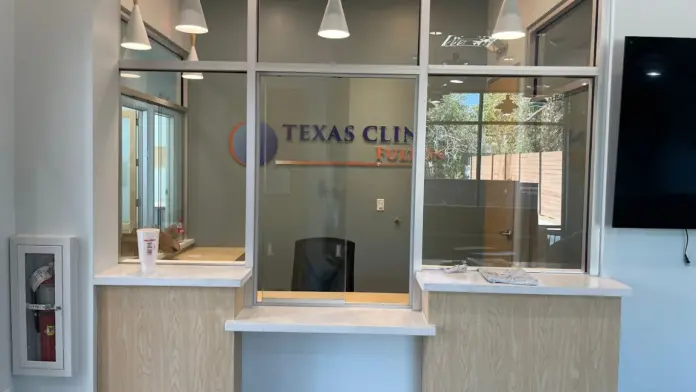
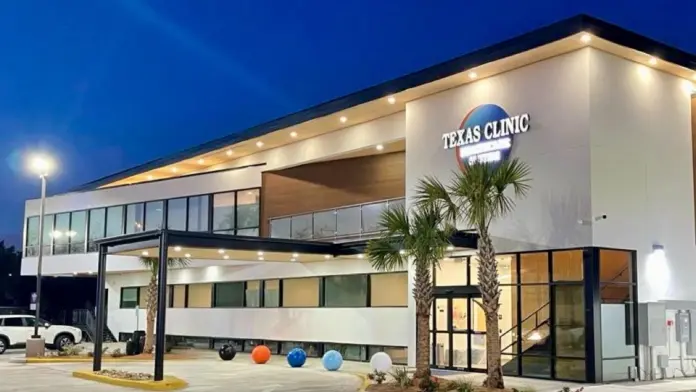
Location
Other Forms of Payment
Self-pay involves paying for treatment out of your own pocket. You can use savings or credit, get a personal loan, or receive help from family and friends to fund your treatment. If you don't have insurance or your insurance plan doesn't cover a specific program, self-pay can help ensure you still get the care you need.
Financial aid can take many forms. Centers may have grants or scholarships available to clients who meet eligibility requirements. Programs that receive SAMHSA grants may have financial aid available for those who need treatment as well. Grants and scholarships can help you pai for treatment without having to repay.
Sliding scale payments are based on a client's income and family size. The goal is to make treatment affordable to everyone. By taking these factors into account, addiction recovery care providers help ensure that your treatment does not become a financial burden to you or your family, eliminating one barrier to care.
Medicaid is a state based program that helps lower-income individuals and families pay for healthcare. Medicaid covers addiction treatment so those enrolled can use their coverage to pay for rehab. When a program accepts Medicaid the client often pays very little or nothing out of their own pocket.
Addiction Treatments
Levels of Care
Treatments
The goal of treatment for alcoholism is abstinence. Those with poor social support, poor motivation, or psychiatric disorders tend to relapse within a few years of treatment. For these people, success is measured by longer periods of abstinence, reduced use of alcohol, better health, and improved social functioning. Recovery and Maintenance are usually based on 12 step programs and AA meetings.
During rehab in Texas, you'll deal with underlying issues that contribute to addiction. By addressing these challenges and learning healthy ways to cope with them, you'll develop strategies that help you live a drug-free lifestyle.
Many of those suffering from addiction also suffer from mental or emotional illnesses like schizophrenia, bipolar disorder, depression, or anxiety disorders. Rehab and other substance abuse facilities treating those with a dual diagnosis or co-occurring disorder administer psychiatric treatment to address the person's mental health issue in addition to drug and alcohol rehabilitation.
Opioid rehabs specialize in supporting those recovering from opioid addiction. They treat those suffering from addiction to illegal opioids like heroin, as well as prescription drugs like oxycodone. These centers typically combine both physical as well as mental and emotional support to help stop addiction. Physical support often includes medical detox and subsequent medical support (including medication), and mental support includes in-depth therapy to address the underlying causes of addiction.
Substance rehabs focus on helping individuals recover from substance abuse, including alcohol and drug addiction (both illegal and prescription drugs). They often include the opportunity to engage in both individual as well as group therapy.
Programs


Clinical Services
Group therapy is any therapeutic work that happens in a group (not one-on-one). There are a number of different group therapy modalities, including support groups, experiential therapy, psycho-education, and more. Group therapy involves treatment as well as processing interaction between group members.
Individual therapy offers you a confidential space to address the complexities of your drug or alcohol addiction. Your therapist guides these personalized sessions to help develop self awareness and manage stress. This promotes sustained sobriety and overall well being.
Amenities
-
Private Setting
Accreditations

The Substance Abuse and Mental Health Services Administration (SAMHSA) is a branch of the U.S. Department of Health and Human Services. Established in 1992 by congress, SAMHSA's mission is to reduce the impact of substance abuse and mental illness on American's communities.
SAMHSA Listed: Yes
Contact Information
6501 Fulton St, Houston, TX 77022
